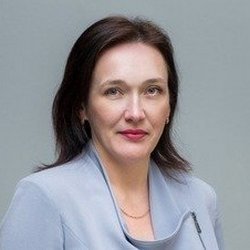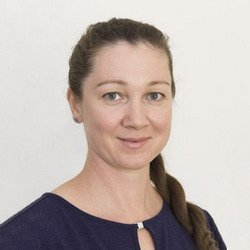‘A lot of traumas have become more active’: pandemic and special operation raise a wave of appeals to psychologists
Tatarstan residents have begun to visit psychologists and psychotherapists several times more often. According to the Doverie Centre for Psychological and Pedagogical Assistance to Children and Youth, the number of requests for six months has already exceeded the average annual values. Stress, anxiety, fear for the future — not everyone can cope with negative feelings alone, so many need help, experts say. The correspondent of Realnoe Vremya found out what troubles the residents of the republic come to psychologists and how the work of psychologists has changed.
Loss of a sense of security and the desire to regain control of the situation
The first and most noticeable thing that has changed in the work of psychologists in Tatarstan is its volume. Thus, 3,373 people applied to the psychological assistance centre Doverie in the first half of the year alone. There were about the same number of consultations for the whole of 2021 and 2020.
According to HH statistics, the demand for psychological assistance increased 3,5 times at the beginning of the year. Previously, a surge in calls to specialists was observed only in August last year, after the removal of anti-Covid-19 restrictions, for example, the transfer of 30% of employees to remote work. Avito's data confirm the same trend. In two years, the number of visits to psychologists in Tatarstan has increased 4 times, in the second quarter of 2022 — the growth was 18%.
According to psychologists, the main problems that patients complain about are fear for the future and the loss of a habitual lifestyle.

It comes to conflicts within families
Another problem faced by a large number of people and which affected the emotional state is conflicts within the family, with loved ones, friends. They are associated with radically different views on the situation, a different perception of events.

According to experts, Tatarstan residents, like other Russians, have become more likely to complain of chronic stress and increased anxiety, as well as various anxiety disorders and panic attacks. Most of these are up to 80% of requests. There were cases when patients even had to be hospitalised.

Although all people are different and their injuries are also different, stress has become a catalyst for exacerbating mental problems against the background of a sharp change in the situation and the unpredictability of the situation. In addition, long-standing subconscious traumas have been revealed.
“A lot of traumas have actualised. The trauma of rejection, the trauma of abandonment, the trauma of betrayal, the trauma of injustice," says private psychologist Madina Kim. “And deep layers of these traumas immediately surfaced.
First Covid-19, then the events in Ukraine
In addition to the above-mentioned factors, a sharp increase in demand for psychological assistance has long been associated with the transition to remote work among Russians against the background of a dysfunctional epidsituation.
“The high interest in the services of psychologists is largely due to the emergence of the possibility of remote consultations. This format is convenient for the specialists themselves, because it allows them to work with a large number of people, and for their clients, who have the opportunity not to waste time on the road and choose a professional from any region of the country," says Artem Kumpel, the managing director of Avito.
If the requests of Russians do not differ much from the requests of Tatarstan citizens, then the quantitative data on appeals to psychologists have some differences. According to the statistics of the aggregator, in Russia the demand for specialists has grown 3,8 times in two years. In the second quarter of 2022, compared with the first, the need for them increased by 20%.
The HH data is approximately the same. In February, the demand for the services of psychologists increased 3 times compared to February 2020. Nevertheless, in the context of the last three years, the peak of appeals to specialists fell on December 2020, which is associated with post-Covid-19 stress of Russians. Then the number of requests fell by almost 4 times. In September 2021, it sharply increased by 150%, after which it began to decline again. Another surge occurred in March 2022. Then the situation hardly changed.
According to experts, the sharply increased tension in society is associated with another factor — the recent peak of the pandemic. The psyche of the population has not yet had time to recover after the coronacrisis, as people are again faced with another stressful event.

The requests addressed to specialists during the pandemic are noticeably similar to those with which patients come to the reception in the last six months. It's all the same anxiety and fear for the future, albeit for different reasons.
“People complained about the state of anxiety, uncertainty, a sense of approaching disaster, a premonition of trouble," says Elena Ovchinnikova.
Lyra Batyrova also noted the cumulative stress effect of the pandemic: “There is such a thing as post-stress disorder. What is happening because of Covid-19, this is already the third year, and we really see the consequences of what has been since the beginning of the stressful situation. We don't know what to expect for a year or two or three, when the special operation is over, it won't end. Stress usually has consequences. There is an acute period when such a peak of appeals. But what will happen next and how it will affect the psyche later — probably, it takes time to talk about how it will develop further.”
According to experts, the peak of appeals due to the special operation was in February — April of this year. In May, the tension went down, but there are still a lot of requests. However, the consequences of severe stress can affect years later. Therefore, after a while, we can expect a surge in citizens' requests for psychological help again.